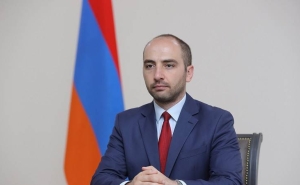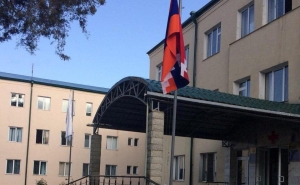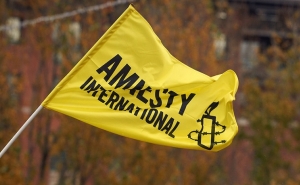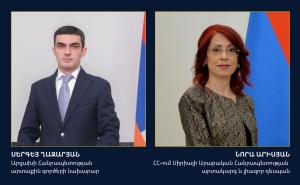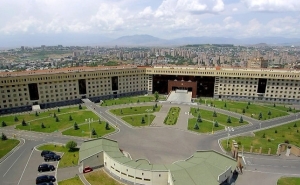 Will the Agreements Between Serbia and Kosovo Serve as an Example for Azerbaijan?
Will the Agreements Between Serbia and Kosovo Serve as an Example for Azerbaijan?

As the independence of Kosovo from Serbia was in its nature quite interesting and precedential for the whole world, the same were the agreements signed between these two countries. If several years ago Serbia was even refusing to enter into direct talks with Kosovo and it was only due to international mediators that some positive changes were recorded, then today we deal with a new reality. As the sides themselves mention, the signed agreements are in the interests of both of them and transfer Serbia-Kosovo relation onto a new level.
Of course, only the fact that Serbia and Kosovo have signed agreements is already quite a big achievement in the context of Kosovo conflict, but the essence of these agreements is even more valuable. According to one of the agreements, association of Serbian communities will be formed in northern Kosovo, which will define the rights of Kosovo Serbs. With another agreement Kosovo will receive its own telephone code, as well as four Serb municipalities in northern Kosovo will be supplied with electricity by Serbian companies. The sides have also come to an agreement over free movement across a bridge on the Ibar River in Kosovska Mitrovica.
These agreements, which have humanitarian nature, are first of all good examples for those countries that are in conflicts. They show that irrespective of the complexity, nature and causes of conflicts, there are questions which are beyond any interests or claims. Any agreement on humanitarian issues can be achieved only if there are established mechanisms of mutual trust, which is simply absent in many conflicts. In this context Karabakh conflict is also not an exception. All the efforts of the Armenian sides to achieve mutual trust among the societies has so far failed due to Azerbaijan. The vivid example of this is the policy of the Azerbaijani government, which for quite a long time continues without any changes: i.e. political prisoners, most of whom appeared in prison for having contacts with Armenians; hatred towards Armenians so much advocated by Azerbaijani media, which one can very often come across on the level of the president; Azerbaijan’s aggressive response to Armenia’s any initiative on solving humanitarian issues (for example the aggressive response of Azerbaijan on the operation of the airport in NKR for humanitarian needs. This response was mainly a threat to bomb the planes if the airport started working).
Azerbaijan’s this behavior and the fact that there are not much positive changes in Karabakh conflict, of course, are the result of the special attitude of the international community, as well as the OSCE Minsk Group co-chairing countries, towards Azerbaijan, which gives the latter a green light to behave like a "spoiled child." This, surely, cannot and should not last long.
Taking into consideration this positive experience of Kosovo and Serbia, maybe it is already the time that the co-chairing countries to begin paying more attention on solving humanitarian problems, as without mutual trust between the parties all the efforts towards the resolution of the conflict are doomed to fail.
Other materials on this subject
- Russian forces have clearly failed in their duties: senators press Biden Administration to break Azerbaijan’s blockade The United States cannot stand aside while the Aliyev regime callously threatens the lives of Nagorno-Karabakh’s citizens, and must hold Azerbaijan to account for blocking a civilian population’s access...
- US calls for the full restoration of free movement through the Lachin Corridor "We remain concerned about impeded access to the Lachin Corridor and the humanitarian implications of this situation. This sets back the peace process and undermines international confidence. We call for...
- Azerbaijani forces violate the ceasefire in Artsakh The ceasefire violation was reported to the command of the Russian peacekeeping troops.
- Azerbaijani units violate ceasefire in several directions, Artsakh’s Defense Ministry says The Armenian side has no losses. The incidents of ceasefire violations were reported to the command of the Russian peacekeeping troops.
- Russian Diplomat Reassures Armenians Over Corridor In Karabakh "The parties are in direct contact, and I assure you that the peacekeepers will not move a single centimeter until there is a new corridor," Seleznyov said.
-
 17:08
17:08The regular session of the Anti-corruption Policy Council takes place in Jermuk
-
 15:05
15:05The Prime Minister sends congratulatory messages to the supreme leader of Iran and the President of Iran
-
 11:11
11:11Armenia sends earthquake aid to Turkey
-
 10:43
10:43Commemoration of the Pontiff St. Sahak Partev
-
 09:16
09:16Some roads are closed and difficult to pass in Armenia
-
 19:55
19:55Phone conversation of the Foreign Minister of Armenia with the U.S. Assistant Secretary of State for European and Eurasian Affairs
-
 18:30
18:30Prime Minister Pashinyan and President Khachaturyan meet
-
 18:20
18:20Ararat Mirzoyan with Co-Chairman of the OSCE Minsk Group of France Brice Roquefeuil
-
 17:01
17:01Humans could land on Mars within 10 years, Musk predicts
-
 16:45
16:45France, US urge 'immediate' end to Nagorno Karabakh blockade
-
 16:01
16:01Blockaded Nagorno Karabakh launches fundraiser to support quake-hit Syria
-
 15:59
15:59Earthquake death toll in Turkey rises to 18,342
-
 15:43
15:43Ararat Mirzoyan Held a Telephone Conversation with Sergey Lavrov
-
 15:06
15:06French president rules out fighter jet supplies to Ukraine in near future
-
 14:47
14:475 Day Weather Forecast in Armenia
-
 14:44
14:44President Vahagn Khachaturyan wrote a note in the book of condolences opened in the Embassy of Syria in Armenia
-
 14:20
14:20Azerbaijan’s provocations impede establishment of peace and stability – Armenian FM tells Russian Co-Chair of OSCE MG
-
 12:57
12:57France representation to OSCE: Paris calls on Azerbaijan to restore freedom of movement through Lachin corridor
-
 11:40
11:40Command of Kosovo forces highly appreciated preparation of Armenian peacekeepers
-
 10:16
10:16The United States withdrew from sanctions against Syria for six months the provision of assistance after the earthquake
day
week
month
Humidity: %
Wind: km/h




